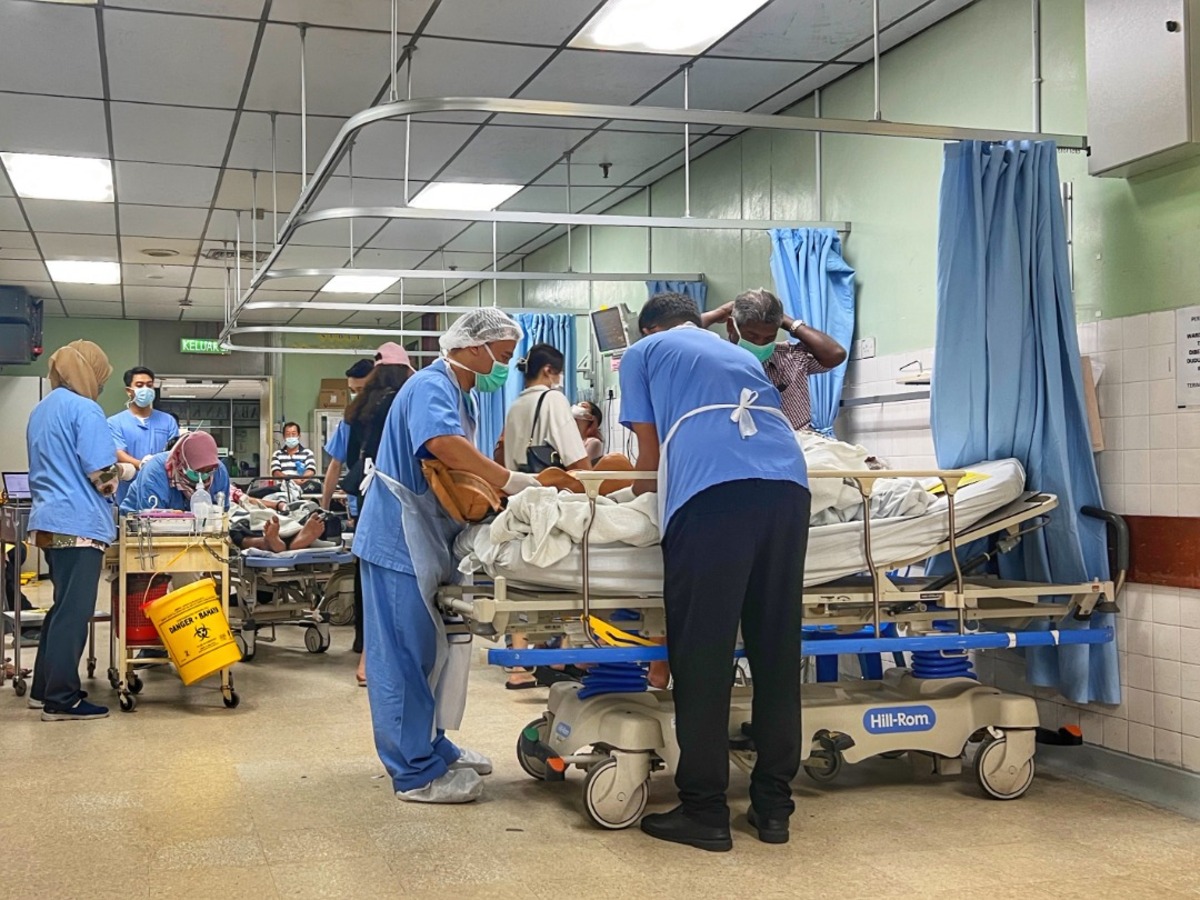KUALA LUMPUR, Nov 24 – Health Minister Dr Zaliha Mustafa justified the exclusion of contract service years from pension calculations by describing the gratuity received by contract doctors after the end of their contracts as “equivalent to pension”.
Dr Zaliha told Parliament recently that contract appointments adhere strictly to the terms and conditions outlined in Service Circular Number 2/2008.
She said when contract medical officers transition to permanent roles, their new permanent positions commence afresh, disregarding their years of service under contract. This renders them ineligible for benefits, such as travel allowances during the July 31 relocation exercise and pensions that would otherwise consider their years of service under contract.
“For doctors appointed permanently from contract positions, the duration of their contract service is not factored in when it comes to matters related to placements and allowances, such as travel expenses.
“Contractual appointments have specific terms and conditions as explained in Service Circular Number 2/2008. For officers appointed on a contract basis, at the end of the contract period, they will immediately receive gratuity from their contract.
“This gratuity is calculated based on the contract service period and is an appreciation element that is equivalent (setara) to a pension. Therefore, the contract service period can no longer be taken into account for pension calculations,” Dr Zaliha said during her winding-up speech for the Supply Bill 2024 in the Dewan Rakyat Monday.
It is important to highlight that the gratuity is non-binding, as suggested in the government circular, as payment can be “considered” for contract officers whose contract has ended, subject to the officer having provided “satisfactory” service, unlike pensions that are time-based.
During a town hall session last February 22 with Dr Zaliha, the Malaysian Medical Association (MMA) proposed to the Ministry of Health (MOH) that permanent appointments for medical officers be retroactively adjusted or backdated to include their years of service as contract doctors. The proposal was rejected by MOH.
Many contract doctors serve at least five years under contract: three years of housemanship and two years of compulsory service.
The government, however, recently opened eligibility for all contract officers in public service, including health care workers, to claim for interstate transfer expenses.
Previously, contract medical, dental, and pharmacy officers taking up permanent positions were not eligible to claim for their transfers (tuntutan bertukar pindah).
The change was prompted by reports that doctors did not have the funds available and had to resort to taking up loans to facilitate transfer to their new location in the permanent appointment exercise last July 31.
However, the Public Service Department’s (JPA) decision to only open up interstate transfer claims to contract staff from last October 9 means that those among the 4,100 over medical officers, plus more than 300 dental officers and over 300 pharmacy officers who relocated for permanent appointments last July 31, are not eligible to claim for their transfer expenses.
Dr Zaliha said that the creation of positions in a facility is based on staffing norms, therefore, permanent appointments are made based on vacancies in each facility.
This is determined periodically based on daily patient arrival patterns, the percentage of hospital bed usage or bed occupancy rate, the expansion of ICT access, service delivery capabilities, and resource-sharing for MOH cluster hospitals.
“At the same time, the MOH must adhere to current policies related to appointments, including the optimisation of human resources and public service policies, as well as the policy of controlling the size of the public service.
“The ministry is attentive to the need for position allocations in every health care facility and consistently strives to improve officer placement procedures. Therefore, the government has prioritised granting positions under various service schemes in the ministry for facilities that are new and have been upgraded,” Dr Zaliha said.








